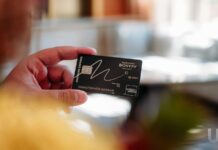Facebook Marketplace Safety: Using Facebook Marketplace can feel convenient, but it also means interacting with strangers. One question that often arises: Should you share your phone number? The short answer: not unless you’re absolutely sure. In this guide we’ll walk you through why sharing your phone number can be risky, when it might be acceptable, how to do it (if you choose), and how to protect yourself overall.
Why the Question Matters?
When you post an item on Facebook Marketplace (or respond to a listing), someone may ask for your phone number whether you’re buying or selling. On the surface this seems harmless: after all, phone numbers are simply another contact method. But the reality is more complex.
Trusted sources note:
According to Norton, you should avoid giving out your personal phone number because it can be used for phishing, harassment or intercepting security codes.
A blog on marketplace safety says sharing your phone number exposes you to risks of spam calls, your number being sold, or being used as part of identity theft.
Cybersecurity writing notes that saving your number in the wild (on a marketplace) erodes your privacy and opens you to scam tactics.
So the question isn’t just “can I?” but “should I?”, and “if I do, how can I minimize risk?”
Should You Give Your Phone Number on Facebook Marketplace: Risks
1. Privacy erosion
Once your phone number is given to a stranger, it can be used by them or others (via resale) for spam, telemarketing, or unwanted calls. The blog from Dingtone highlights how sharing the number can lead to multiple contacts beyond the original buyer/seller.
2. Scam access and account takeover
Scammers often use your phone number to trick you into giving them verification codes (for example, using your number to activate a “second” account like Google Voice). One scam described: a buyer asks for your phone number, you receive a 6-digit code, you provide it thinking it’s normal, and trap! Your number gets tied to the scammer’s account.
3. Loss of hotline of security
If you move communication out of the Marketplace Messenger thread (to SMS or WhatsApp), you lose the built-in protections: log of messages, tie-in with your profile, ability to report via the platform. For example, Keeper Security’s blog says the best protection is to communicate only through Facebook Messenger.
4. Red flags and scam behaviour
When someone asks for your number rapidly, before trust is built, it is a strong warning sign. Eg: “If you wouldn’t give your number to a stranger standing in a parking lot, you shouldn’t give it here.”
When (If Ever) It Might Be Acceptable?
It’s not impossible that giving your phone number on Facebook Marketplace could be okay in certain controlled circumstances. But you should only consider it after careful thought and with safeguards.
Let’s look at a few situations:
You’ve built trust already. Maybe the other person has a solid profile, lots of good reviews on Marketplace, and you’ve been chatting back and forth on Messenger. If you feel at ease, that’s a good sign.
You’re using a separate number. Instead of handing out your main phone number, you go with a temporary or virtual one just for online deals. Plenty of blogs suggest this, keep your real number to yourself and use a backup for buying and selling.
Sometimes, voice or text just makes sense. Say you’re arranging a pickup for something big, or both of you just find it easier to coordinate details over the phone. Even then, make sure you already trust the person and have checked their profile.
Set your boundaries. Maybe you only give out your number for this specific deal, and for everything else you switch back to Marketplace messaging. Meet in public. Keep things focused on the transaction and don’t let it get personal.
Facebook Settlement: How Much Could You Get from $725 Million
Facebook Marketplace Safety: How to Protect Yourself (If You Decide to Share)?
If you’re okay with sharing your phone number and it feels necessary, here’s how to do it more safely:
Use a backup or temporary number. Grab a second SIM or try a virtual number app. This way, your real phone number stays private.
Stick to Messenger for most of your conversations and proof. Even if you give out your number, keep important talks and negotiations in Marketplace messages so you’ve got a record.
Check out the other person’s profile. Look at how long their account’s been around, see if they have reviews, and scan their activity. If the account is new or empty, that’s a big red flag.
Don’t hand over other personal info. Sure, you might share your number, but don’t give out your bank details, verification codes, home address, or anything else sensitive.
Watch for weird texts or calls. If you start getting spam, sketchy verification requests, or odd messages after sharing your number, don’t wait, block the number, tell your carrier, or even change your number if it gets bad.
Keep a record of your conversations on the platform. If something goes wrong, you’ll want that chat history on Messenger for support or to report the issue.
And honestly, trust your gut. If anything feels off like pressure, urgency, or someone pushing you to move off the platform just walk away. It’s not worth the risk.
My Recommendation; What I’d Do?
If I were to do a transaction on Facebook Marketplace by buying or selling products in India or any other location, this is the how I would deal with it:
1. It would be my absolute last step to involve my primary phone number into the conversation.
2. Initially, I’d correspond through Messenger only and, at the same time, I would be scouring the profile of the person I’m dealing with and their messages for clues.
3. Everything good and making total sense (for instance, coordinating a big pickup), I can probably share with them my temporary, or work number. No one should have the right to my personal life.
4. About our meetup: The place I usually go for this kind of thing is public, plus, I bring a friend or at the very least inform someone about where I am going, and lastly, I also make sure I both check the item and the money before going anywhere further.
5. After the deal’s done: If I were to employ a temporary number, then I’d replace it or just remove from using it for Marketplace stuff.
6. Moreover, if I were to tell the truth, ig anything wouldn’t sit well with me such as, for example, their insistence on getting the verification codes, attempt to have the conversation elsewhere and reject the idea of meeting in public, I’d simply drop off the scene, no questions asked.
Facebook Marketplace Safety: FAQs
Q1: Are there any situations in which sharing my phone number on Facebook Marketplace is totally safe?
A: No, it is never 100% safe. There is a way for you to reduce risk by implementing the steps detailed above, but the risk will always be there if you deal with strangers. The key to this is being constantly vigilant.
Q2: As a buyer, what should I do if a seller is persistently asking for my phone number to set up the pickup?
A: Find out from them the reason for needing your number. In case it is simply to text when they arrive or something equally simple, a temporary number can be used or texting only can be agreed upon (no calls). Just make sure that you are meeting in a safe place and you are not giving away any other personal information.
Q3: Does the platform itself ban giving phone numbers?
A: Not completely, but the platform (Facebook) emphasises “Communication on Facebook” and “Protect your privacy” in its official safety tips: “Communicate on Facebook. Protect your privacy.” So while it is allowed, giving away your number means you are moving partly outside their safety bubble.




